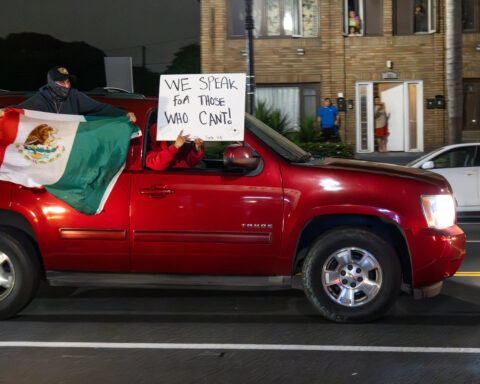The City of Santa Ana enacted a moratorium on residential and commercial foreclosures and evictions last Thursday, preventing any tenant who has had their income impacted by the coronavirus pandemic from being subjected to late fees or eviction notices.
In the wake of COVID-19, executive order N-28-20 was issued to prevent avoidable homelessness. Many workers were fired or laid off, leaving them wondering what would happen come April 1.
Tenants who qualify are to present their property owner or their landlord representative with a written notice stating their loss of income and inability to pay rent due to COVID-19 in addition to supporting documentation.
Qualifying circumstances are listed as the following:
- Being sick with COVID-19 or caring for a household or family member who is infected with COVID-19
- Lay-off, loss of hours, or other income reduction resulting from business closure or other economic or employer impacts of COVID-19
- Compliance with a recommendation from a government health authority to stay home, self-quarantine, or avoid congregating with others during the state of emergency
- Extraordinary out-of-pocket medical expenses
- childcare needs arising from school closures related to COVID-19
Documentation must be presented within 30 days after rent is due.
However, the executive order does not excuse tenants from paying any owed rent. The property owner has the right to seek payment after the local emergency is over, and tenants will have six months to pay without additional late fees.
“Keep paying your rent, keep paying wherever you can, but if something happens and you can’t, we’re gonna make sure you don’t get evicted in the middle of this whole crisis that we’re suffering,” Santa Ana Mayor Miguel Pulido said.
https://eldonnews.org/news/2020/03/26/coronavirus-santa-ana-college-breaking-news-live-updates-orange-county/
During a phone conversation with the landlord of a collection of Willard apartments, she said that an informational flyer was distributed to the entire complex, offering discounts if rent was paid before March 31, and in the case of those who were unable to make payment in full, were directed to apply for a payment plan.
As properties are owned by different management teams, experts suggest that tenants first contact their property manager about specific local emergency programs.
In addition to the residential moratorium, any city-provided services such as water, sewage, and garbage will not issue shut-off notices for a period of 60 days.
Residents who can pay their bills but need more time will not be charged with a late fee.
Councilmember Vicente Sarmiento said during a phone interview that residents will be able to file for hardship and may have a partial or complete amount of the bill waived. Payment arrangements will be available for any balances yet remaining.
SoCal Edison announced a similar solution.
“For those worried that your service may be disconnected for nonpayment, SCE had suspended service disconnections for nonpayment and is waiving late fees for residential and commercial customers,” SCE President Pedro J. Pizzaro said.
Edison has also made information available on their website, which has a page dedicated to explaining the actions SCE will take during the COVID-19 emergency. It encourages customers to contact the SCE Customer Contact Center to arrange payment extensions.
This executive order is to remain in effect until May 31, 2020, or longer if extended by the Governor.
- Próximos cambios para las elecciones del 3 de noviembre - October 5, 2020
- Pepper sprayed at the frontlines: Saturday’s “riot” according to a student protester - June 2, 2020
- TRANSCRIPT: Live Chat with Chancellor Marvin Martinez 4/16/2020 - April 22, 2020
















